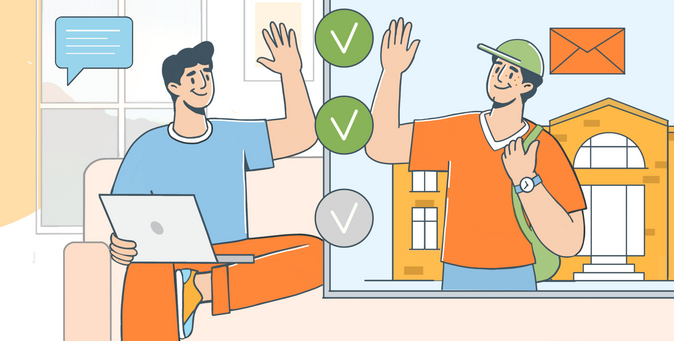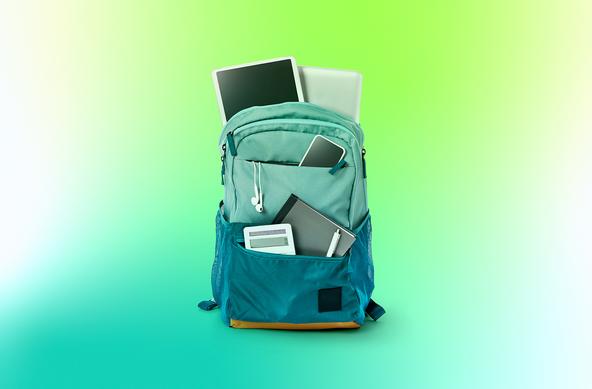2025_8_19 The symptoms are coming from inside the house.
We are in a severe Covid surge right now thanks to Late Summer/Back To School, and it will also probably worsen significantly again for the winter holidays. Because your risk for Long Covid increases with each infection, here are some steps you can take during the acute infection to lower your risk of Long Covid, or lower the severity of how a reinfection will worsen your existing Long Covid.
This is not medical advice, this is a summary of things I have read from various studies, journalists, and newsletters, and what I try to prioritize for myself. I send this to loved ones who accept my offer for it when they or someone they know gets infected, and I figured I should make it more broadly accessible.
Ways to Lower Your Risk of Long Covid &
Lower The Severity of A Reinfection’s Worsening Your Long Covid
Medicines, Vitamins, and Supplements
- Increase Vitamin D ASAP and sustain it for at least a month. It’s a reserve vitamin so you can’t cram it all in 2 days, and should not. It is possible to have too much Vitamins A & D, so please be mindful of dosing.
- Increase Iron ASAP and sustain it, similarly to above.
- Metformin has LOTS of evidence of decreasing LOng Covid risk with typically few side effects, but it does require a prescription.
If you’re asking your doctor, I recommend supplying a trusted source: This 2023 Quadruple Blind RCT Study is a Gold Standard for clinical trials. If relevant, additionally add 2025 Study found added efficacy in Fat Folks, 2023 BMJ Blog, 2025 RECOVER Blog. - Antihistamines have preliminary research to support them decreasing LC risk. Recommend an H1 (cetirizine/zyrtec) and an H2 (Famotidine/Pepcid, Cimetidine/Tagamet). Use a modern antihistamine as listed above to minimize side effects and long term risk, do not generally recommend first generation antihistamines including Dramamine, Benadryl, NyQuil or generic versions unless you have a different medical reason for choosing them. These are typically available without a prescription in the US.
- A recent study from Germany found a Nasal H1 Antihistamine, Azelastine Nasal Spray significantly reduced covid infections. More research is needed, but a 2x a day dose of Azelastine, or 3x a day dose of German Azelastine is extrapolated to be beneficial from a long covid precaution perspective similarly to other H1 medications above. This is typically available without a prescription, and is inexpensive in the US.
- Paxlovid is less effective at decreasing Long Covid risk in the acute phase, but does have other benefits, even if started late. It is additionally showing progress as part of a combination therapy. Stock up on mints and cough drops though.
- Magnesium, Vitamin C and other immune-boosters can be very beneficial IF you are not autoimmune/don’t have other relevant considerations.
- If you are on trans masculine HRT or similar medications please continue. Men & NB people with similar levels of hormones have lower risk and sometimes lower symptom burden than women & NB folks with similar hormone levels. We aren’t sure why yet.
Other OTC items which might help lower the viral load or otherwise make the acute infection less impactful:
- A mouth wash containing PVP-I [povidone-iodine] or CPC [cetylpyridinium chloride]. This can be used multiple times a day.
- Green tea (ECGC)
- Hibiscus tea (ACE2)
- Nicotine, surprisingly to some, though Indigenous People of Turtle Island know Traditional Tobacco as Medicine. If you are already using nicotine (including patches), you can keep it up during the acute phase to hopefully lower some risk. It is also being investigated as a Long Covid treatment, I had a positive experience with my experiment.
Transmission Precautions (how to protect people you live with, etc):
COVID is most often transmitted via the air, not droplets like we thought early in the pandemic. As such:
- Fresh air will be your easiest and most effective option, assuming climate safety. Even a slightly open window will be MUCH better than closed windows.
- Masks are extremely effective, especially when both parties wear them. Respirators (aka a mask with a safety rating such as N95, KN95, KF94, P2, FFP2, DS) are best, but anything is better than none. Try to get as good of a seal as you can/minimize air leaks.
- Air filtering with HEPA filters is great if you have access and funds. Try to make sure the filter(s) you use are sufficient for the square footage of the space. Earlier variants had a filter goal of 6 air changes per hour (ACH), but anything is better than nothing, especially when combined with opened windows, etc. If the filters are insufficient for the square footage/meterage or ACH, place them for largest impact: for example close to the sick person, in areas with poor ventilation, or areas of high social contact.
- If HEPA filters are too expensive or unavailable, try to make a Corsi-Rosenthal Box (a DIY air filter alternative using MERV13+ filters and a box fan, free directions abound online). Same strategies as above.
- Last home air filter precaution: most climate control systems have a filter, and if that filter is already or can easily be changed to a MERV13+ filter, that will be an additional help.
- If you must run errands/go to work/etc, please prioritize one of the rated respirators above. Try to do curbside or other distanced, outdoor pickup options where available.
- There are nasal precaution options including the aforementioned OTC H1 Antihistamine Azelastine and Profi Spray (which is highly effective, but their science was measured with nasal swab application, not spray).
- We have stopped the acute spread of Covid in our home two times (that we know of! the real number is probably much, much higher) by using strategically placed HEPAs and window cracking. Think Swiss Cheese:
Please Take Care:
- If you feel any sustained exhaustion or fatigue, please rest and do not push yourself for at least two-three months after infection, including physical and mental exertion. A lot of us long haulers had an inkling early on that something was off but we pushed ourselves to be “back to normal” and that caused immense lasting harm. It might sound like a long time now, but a few months is a short time in comparison to the rest of your life. Trust me.
I wish I had read this earlier: Indefinitely Ill – Post-Covid Fatigue - Pacing is the most helpful tool I have found for my health, and has been practiced by people with post-viral illness for a long time.
Intro to pacing: ME Action’s Stop Rest Pace - Scheduling breaks with reminder alerts is how I do it, and by having specific things I look forward to about downtime (slowed audiobooks, a nature soundscape, etc). Some people are better at remembering on their own.
- Lastly, I recommend using a symptom tracker even for initial infection (and that couple month period after). Hopefully before too long there won’t be many symptoms to track and things’ll be mostly a-ok, and it won’t be needed, but the way covid makes the brain all squiggly, IMO tracking symptoms is super important for understanding what your body needs to have your best chance at maintaining your current health!
- The app Visible is popular in some LC communities, but a journal or calendar is a-ok too. It helps to check in with your body and see how much feels safe to do and what to prioritize. (Visible is free for symptom tracking and I recommend the free version short-term. If you end up needing long term pacing help and want to include the paid wearable, though here’s my coupon code: https://join.makevisible.com/68284299c4dc3e )
Thank you for taking care of yourself and your communities. We need all the precautions, kindness, and care we can get right now.Additional Covid Safety info from someone else’s patreon:
https://www.patreon.com/posts/huge-free-covid-86871700
My other Long Covid & related topics info:
Illmarks Resources Page
https://www.illmarks.com/symptoms-are-coming-long-covid-prevention-tips/







 Πλήρη συμβατότητα με μορφές MS Office
Πλήρη συμβατότητα με μορφές MS Office

